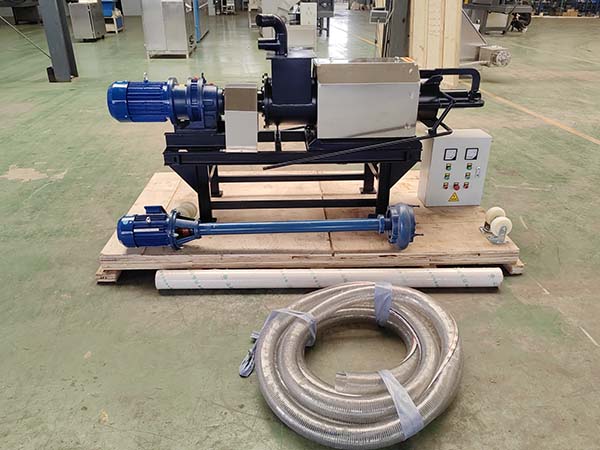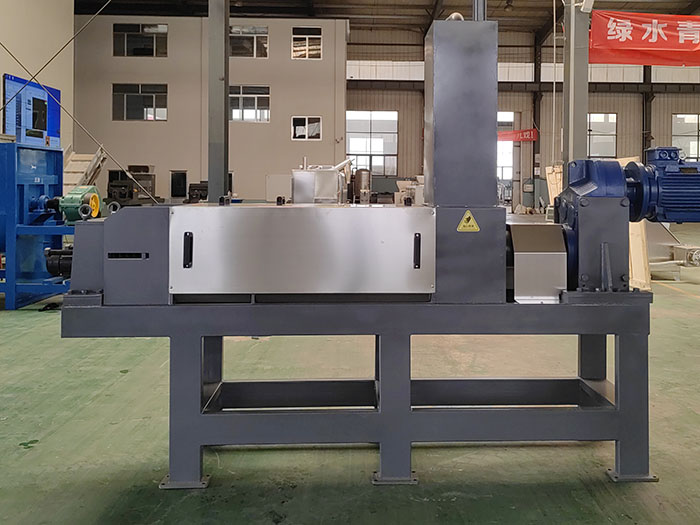Manure separators are popular among farmers for several reasons, as they offer various benefits related to managing livestock waste and improving farm operations. Here are some of the key reasons why manure separators are commonly used by farmers:
1. Nutrient Management: Manure separators help in the separation of solid and liquid components of manure. This separation allows farmers to better manage the nutrient content of the manure. The liquid fraction is often rich in nutrients like nitrogen and potassium, which can be more easily applied to crops as a fertilizer. The solid fraction can be composted or used as bedding material, reducing the environmental impact of manure disposal.
2. Reduced Odor and Ammonia Emissions: Separating the solid and liquid portions of manure can help reduce the smell and ammonia emissions associated with manure storage and spreading. This is particularly important for farmers in proximity to residential areas or in areas with strict environmental regulations.
3. Improved Manure Handling: Manure separators make manure handling more efficient and less labor-intensive. The separated liquid can be pumped, transported, and spread more easily than raw manure, reducing the time and effort required for these tasks.

4. Better Storage Options: Separating manure into liquid and solid fractions often results in a reduction in overall volume. This can lead to better storage options, especially for farms with limited storage capacity. Liquid manure can be stored in lagoons or tanks, while the solid fraction can be stacked or composted in a smaller area.
5. Enhanced Crop Yield: The liquid fraction obtained from manure separation is a nutrient-rich fertilizer that can be applied directly to crops, promoting healthier growth and potentially increasing crop yields.
6. Compliance with Regulations: Many regions have environmental regulations that limit the amount of manure that can be applied to fields to prevent nutrient runoff and water pollution. Manure separators help farmers comply with these regulations by allowing them to apply the nutrient-rich liquid fraction more precisely and in accordance with local guidelines.
7. Cleaner Animal Housing: Separating manure from the animal housing area can lead to cleaner and more hygienic living conditions for livestock. This can help reduce the risk of disease transmission and improve animal health.
8. Sustainability: Manure separation is considered a more sustainable practice because it helps reduce the environmental impact of livestock farming. It minimizes nutrient runoff into water bodies and decreases greenhouse gas emissions associated with manure management.
9. Cost Savings: While the initial investment in a manure separator can be significant, the long-term benefits, including reduced labor costs, improved crop yields, and compliance with regulations, can lead to cost savings for farmers over time.

Overall, manure separators are popular among farmers because they offer a range of advantages, including better nutrient management, environmental compliance, and operational efficiency, ultimately contributing to more sustainable and profitable farming practices.
A manure separator is primarily designed to process animal waste, which typically includes a combination of solid and liquid components. The specific materials that can be processed with a manure separator include:
1. **Biogas Slurry**: Many manure dewatering machines are specifically designed to process manure in the form of slurry, which is a mixture of solid and liquid components. The separator separates the solid fraction from the liquid fraction.
2. **Dairy Manure**: Manure from dairy cattle is a common material processed with manure separators. It typically contains a mixture of solid and liquid components.
3. **Poultry Litter**: In poultry farming, manure separators can be used to process poultry litter, which includes chicken or turkey feces mixed with bedding material.
4. **Swine Manure**: Manure from swine (pigs) can also be processed using manure separators, as it typically contains both solid and liquid components.
It's important to note that while screw press separators are versatile and can handle a range of materials, their effectiveness may vary depending on the specific composition of the manure or waste being processed. Some manure separators are designed with features or settings that can be adjusted to optimize the separation process for different types of manure. Proper operation and maintenance of the separator are essential to ensure efficient processing and separation of solid and liquid components.
Copyright:@2020-2021
Comments Please sign in or sign up to post.
0
0 of 500 characters used